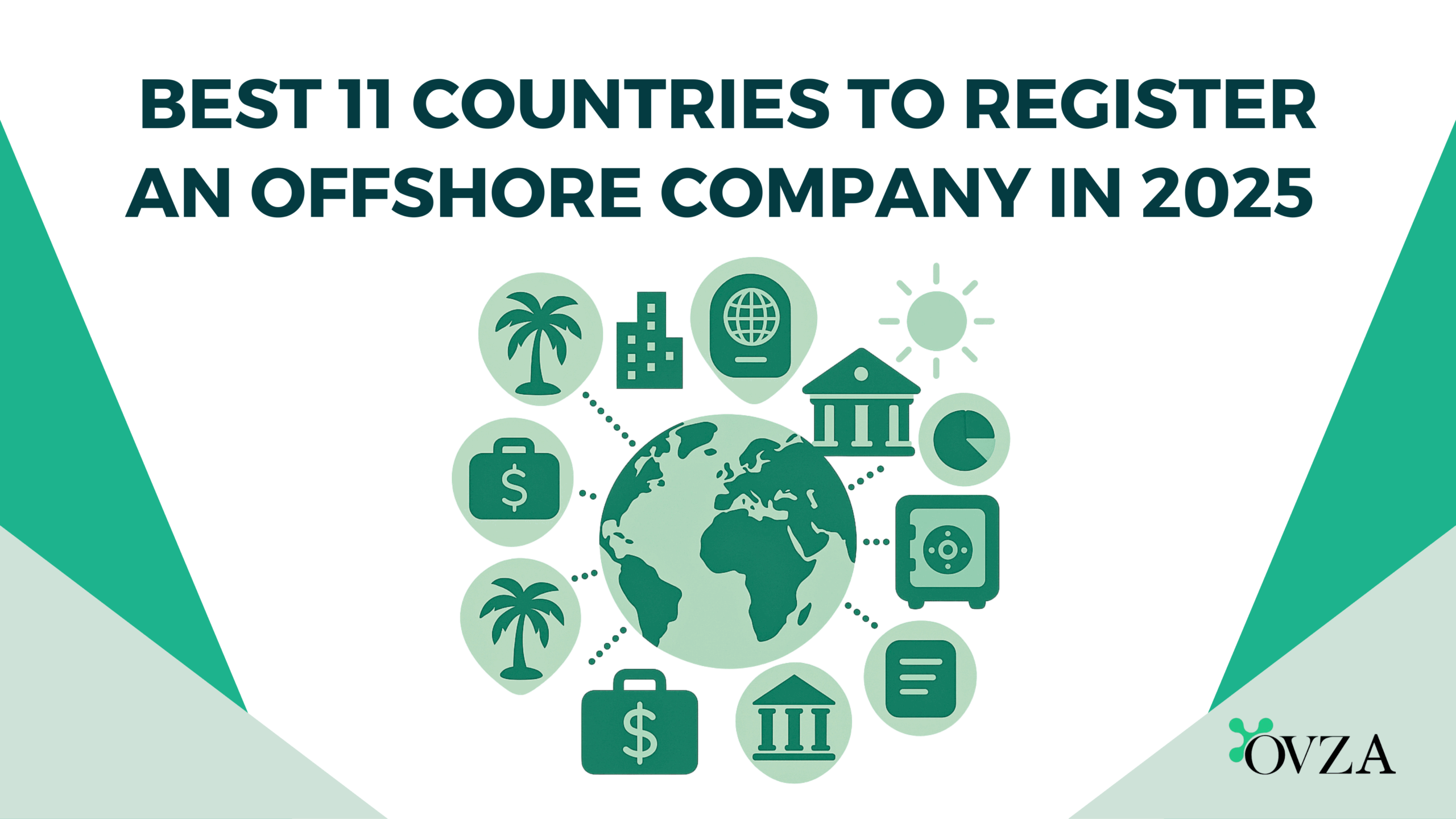Offshore Company Compliance and U.S. Taxes: An In-Depth Guide
Owning an offshore company presents numerous benefits including asset protection, international market access, and potential tax advantages. However, U.S. persons who own or have interests in foreign corporations must navigate a complex landscape of tax compliance rules established by the Internal Revenue Service (IRS). Failure to comply with these regulations can lead to significant penalties and unintended tax consequences. This article provides a detailed overview of offshore company compliance requirements and U.S. tax implications, emphasizing the importance of proper planning and legal support.
Understanding Offshore Companies for U.S. Tax Purposes
An offshore company is typically a foreign corporation established outside the United States, often in jurisdictions known for favorable business climates and tax regimes. U.S. shareholders who own such companies are subject to specific reporting requirements and taxation rules under the U.S. Internal Revenue Code (IRC). These obligations exist regardless of whether the offshore company distributes profits to its U.S. owners.
The primary motivation behind these tax rules is to prevent U.S. taxpayers from deferring taxation indefinitely by holding investments in foreign entities. Instead, the IRS requires timely reporting and taxation based on various criteria. Among the most critical elements to understand are Form 5471 filing requirements and Subpart F income inclusions.
Form 5471: The Cornerstone of Foreign Corporation Reporting
Form 5471, "Information Return of U.S. Persons With Respect To Certain Foreign Corporations," is one of the most burdensome and detailed IRS forms for U.S. persons who have ownership interests in controlled foreign corporations (CFCs) or foreign corporations meeting specific ownership thresholds.
U.S. shareholders must file Form 5471 annually to disclose detailed information about the foreign corporation, including its income, assets, earnings, shareholders, and transactions. The form is essential for the IRS to track income deferral and to enforce proper taxation of foreign earnings.
Failure to file Form 5471 accurately and on time can lead to penalties starting at $10,000 per year per form, with additional escalating penalties for continued failure. Therefore, understanding when Form 5471 is required and how to complete it properly is fundamental for offshore company compliance in 2025 and beyond.
Subpart F Income: The Hidden Tax Trap
Subpart F is a section of the IRC designed to prevent tax deferral on certain types of income earned by CFCs. It requires U.S. shareholders who own at least 10% of the foreign corporation to include in their taxable income their proportionate share of the corporation’s Subpart F income each year, even if no distribution has been made.
Subpart F income generally includes passive income types such as foreign base company income, insurance income, and certain types of investment income. The objective is to discourage U.S. taxpayers from shifting passive income to low-tax foreign subsidiaries to avoid current U.S. taxation.
Because Subpart F income inclusions increase a U.S. shareholder’s taxable income regardless of actual cash distributions, taxpayers may face unexpected tax liabilities. This hidden tax trap underscores the importance of proactive tax planning when owning offshore companies.
Additional Reporting Requirements and Compliance Considerations
Beyond Form 5471 and Subpart F rules, U.S. taxpayers owning offshore companies are often subject to multiple other reporting requirements, including but not limited to:
- FBAR (Foreign Bank Account Report) filings when foreign accounts exceed $10,000 at any point during the year;
- Form 8938 (Statement of Specified Foreign Financial Assets), mandated under FATCA;
- Transfer pricing documentation and disclosures in related-party transactions;
- Disclosure of certain foreign trusts or entities under applicable regulations;
- Compliance with anti-money laundering (AML) and know-your-customer (KYC) rules for international transactions.
Navigating these overlapping requirements demands comprehensive record-keeping, meticulous financial reporting, and continuous awareness of changing tax laws. Non-compliance can result in penal assessments, interest charges, and even criminal investigations under severe circumstances.
Planning Strategies to Mitigate Tax Risks
Effective tax planning is essential for U.S. persons with offshore companies to minimize tax exposure and ensure compliance. Some common strategies include:
- Structuring company operations to qualify for exceptions or exclusions from Subpart F income;
- Utilizing tax treaties and foreign tax credits to avoid double taxation;
- Implementing appropriately designed intercompany agreements and transfer pricing methods;
- Considering the use of Limited Liability Companies (LLCs) or partnerships instead of C-corporations to alter tax treatment;
- Engaging in timely and accurate reporting to preempt penalties and audits;
- Regularly reviewing and updating corporate structures to adapt to regulatory changes effective in 2025 and beyond.
Such proactive measures can convert compliance requirements from burdensome obligations into tools that protect wealth and ensure long-term operational efficiency.
The Role of Legal and Tax Professionals
Given the complexity of U.S. tax laws governing offshore companies, consultation with experienced legal and tax advisors is indispensable. Professionals specializing in international tax law can help clients:
- Determine whether their offshore entities meet filing thresholds;
- Prepare and file accurate Forms 5471 and related disclosures;
- Advise on proper entity structuring to optimize tax positions;
- Develop compliance calendars to ensure timely filings;
- Represent clients in case of IRS inquiries or audits.
Legal advice is particularly vital to understand evolving tax rules effective in 2025, as legislative changes may affect reporting standards, penalty provisions, and treaty benefits.
Common Pitfalls and How to Avoid Them
Many U.S. taxpayers inadvertently trigger penalties due to misunderstandings of offshore reporting rules. Common pitfalls include:
- Delaying or neglecting to file Form 5471 despite ownership thresholds;
- Misclassifying income categories leading to incorrect Subpart F income calculations;
- Failing to report foreign financial accounts under FBAR or FATCA;
- Ignoring state-level tax obligations related to offshore entities;
- Insufficient documentation of transactions between related entities.
Avoiding these issues requires education, detailed record management, and consistent collaboration with tax experts familiar with offshore compliance nuances.
Examples Illustrating Compliance Challenges
Consider a U.S. shareholder owning 100% of an offshore corporation registered in the Cayman Islands. Even if the company does not distribute dividends, the shareholder must include Subpart F income in their taxable income, file Form 5471 disclosing the corporation’s financial data, and comply with FBAR requirements if foreign accounts exceed reporting thresholds.
Another example involves complex multinational structures where U.S. persons participate indirectly in controlled foreign corporations through intermediary entities. Such arrangements necessitate layered reporting, increasing risks of errors and omissions without proper legal guidance.
Keeping Up with Regulatory Changes in 2025 and Beyond
Tax regulations impacting offshore companies are subject to continuous revision. The year 2025 is poised to bring further enhancements in transparency measures, penalty frameworks, and international cooperation among tax authorities.
Some anticipated changes include stricter enforcement of Subpart F regimes, enhanced data sharing agreements under global initiatives like the Common Reporting Standard (CRS), and the potential expansion of reporting obligations. Staying informed and agile in response to these developments is critical for offshore company owners.
Conclusion
Compliance with U.S. tax reporting requirements for offshore companies is complex but non-negotiable. Owners face significant obligations under Form 5471, Subpart F income inclusions, FBAR, FATCA, and additional regulatory demands. Proper planning, knowledgeable legal assistance, and timely filings transform these obligations from potential tax pitfalls into protective strategies safeguarding assets and reputation.
For individuals or businesses seeking comprehensive guidance on offshore company compliance and U.S. tax matters effective in 2025, it is critical to engage with professional advisors who understand the evolving legislative landscape. Our team at Legal Marketplace CONSULTANT is dedicated to providing tailored support to navigate these challenges efficiently and effectively.
Legal Marketplace CONSULTANT is a legal firm specializing in comprehensive legal services and tax consulting for businesses and individuals engaging in international and offshore activities. Our expertise spans corporate law, tax compliance, and international regulations to provide clients with reliable and customized advice.































